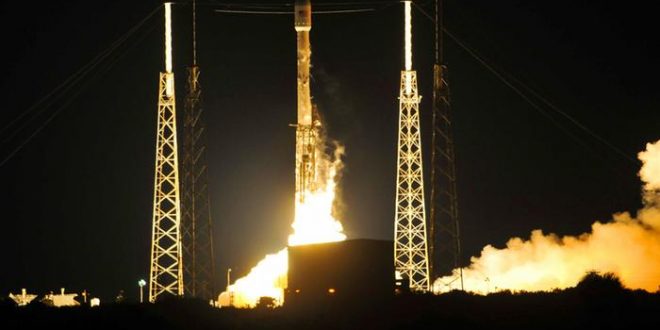SpaceX Lands Falcon 9 Rocket at Sea During Japanese Satellite Launch.
An unmanned SpaceX rocket has landed back on Earth after a successful commercial mission to put a satellite into orbit. Expectations for the mission had been low, with the craft carrying a minimal amount of fuel.
It was the second consecutive droneship touchdown by the rocket’s first stage in one month and was apparently a surprise even to the California-based company itself.
“Woohoo!!” SpaceX’s founder Elon Musk wrote on Twitter after the early morning landing at Cape Canaveral, Florida. “May need to increase size of rocket storage hangar.”
The main objective of the mission was to deliver a commercial communications satellite called JCSAT-14 to a Geostationary Transfer Orbit (GTO), which was used to move a satellite into a geostationary orbit about 36,000 kilometers over the equator.
The satellite, owned by Japan-based SKY Perfect JSAT Corporation, will provide TV programming and broadband services in Asia, Russia, Oceania and the Pacific Islands, replacing an older satellite called JCSAT-2A.
Given this mission’s GTO destination, SpaceX said before launch a successful landing is “unlikely” because the first stage of the rocket would be subject to extreme velocities and re-entry heating.
SpaceX made its first successful rocket landing on a droneship in April after launching a cargo ship to the International Space Station. Its four previous such attempts all ended in failure.
All of these landing attempts are part of SpaceX’s effort to produce a fully and rapidly reusable rocket, which it said will dramatically reduce the cost of space transport.
Traditionally, rockets are designed for a single use only, burning up or crashing into the ocean after liftoff.
Agencies/Canadajournal
 Canada Journal – News of the World Articles and videos to bring you the biggest Canadian news stories from across the country every day
Canada Journal – News of the World Articles and videos to bring you the biggest Canadian news stories from across the country every day



